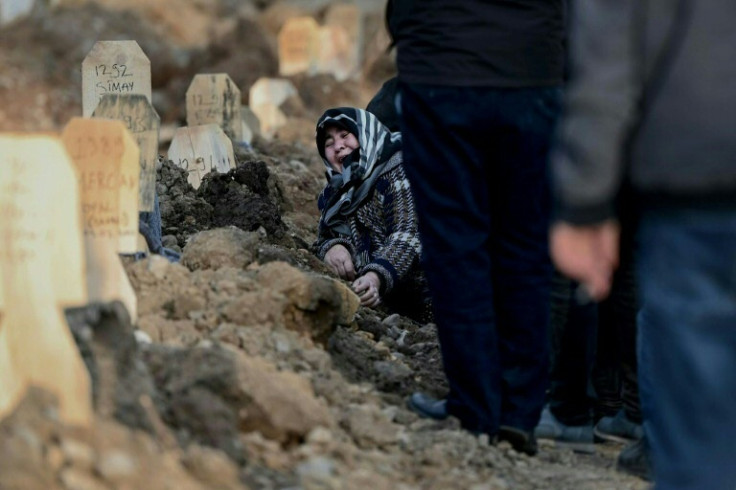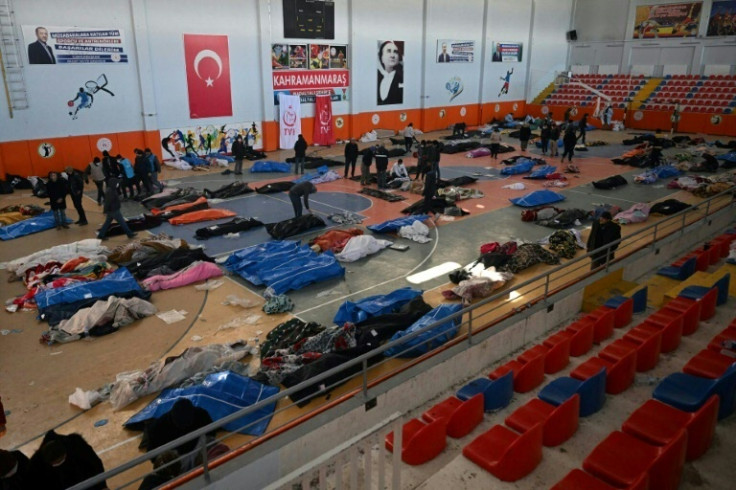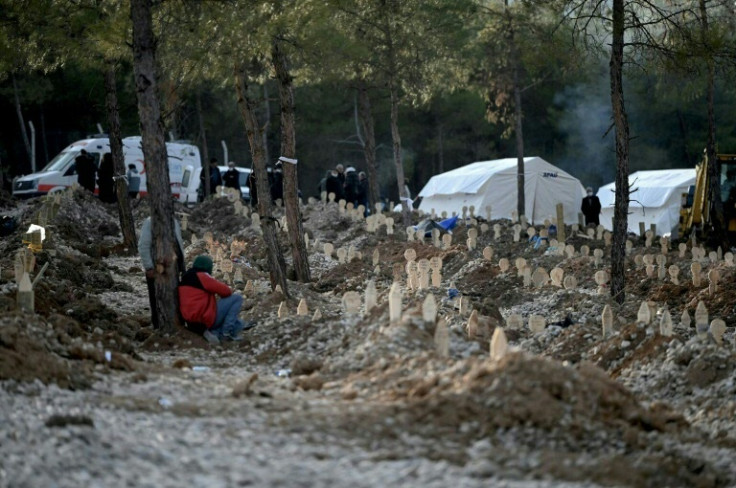Race To Identify Turkey Quake Victims

Tuba Yolcu is desperate for news of her missing aunt and scours a sports hall where victims of a powerful earthquake that hit her hometown in Turkey lie in body bags.
"We hear (the authorities) will no longer keep the bodies waiting after a certain period of time, they say they will take them and bury them," she said.
"God willing we will find her," Yolcu said, with worry etched on her face.
Monday's 7.8-magnitude tremor struck Kahramanmaras in the country's southeast, unleashing catastrophe in the region and Syria, killing at least 28,000 people.
Anguished families flock to sports halls, hospital morgues or cemeteries in the severely hit city -- where bodies are piling up -- in a bid to find their missing relatives.
"Every unidentified body will eventually be returned to their family," a prosecutor said, trying to soothe the families.
"Don't worry, blood samples are taken from each and every missing body," he assured.
Families -- who cannot reach their loved ones during the rescue work -- check one by one bodies either in bags or wrapped in blankets.
"We show the faces to their immediate relatives," a crime scene investigator in a hazmat suit told AFP at a large grave outside the city.
Funeral cars deliver a stream of bodies, burying them one by one.
"If the identity is unknown, we take fingerprints and tooth samples and compare them with their relatives," said the investigator, who carries a camera around his neck.
About 2,000 bodies have been identified at the cemetery, which is filled with freshly dug graves.
Next to the wooden headstones at the makeshift cemetery, where some are wrapped by scarves, people mourn their relatives.
One woman sits near the grave, unable to stop crying.
Missing bodies are stored lower down, where investigators take pictures and notes.
Yusuf Sekman, from the religious affairs directorate, said the unidentified bodies are also divided according to where their collapsed building was located.
This allows relatives to "also look, based on the recovered body's address", he said.
"Their samples are taken, and noted down on body bags" to help with identification.
Health Minister Fahrettin Koca said on Friday he hoped the missing bodies would be identified and said the government was doing everything it could.
"We upload unidentified patients' photographs to a special software in order to match," Koca said.
Unfortunately for Yolcu, her aunt was not at the sports hall since an official said all the bodies have been identified.
When the quake struck, her aunt was in the city but Yolcu was in a village.
"We cannot find her body," she said, adding that she won't stop looking.
As she stepped out of the hall, she turned back to her husband and said: "Let's return to the rubble", hoping that perhaps her aunt had yet to be pulled out.


© Copyright AFP 2024. All rights reserved.





















